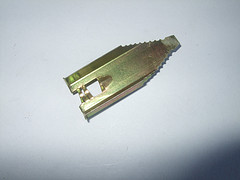CNC Milling And CNC Turning
Have you ever looked at a component of something you were using and wondered how this component was made? If so you have probably seen the work of a CNC milling/turning machine. These machines make it possible to make everything from simple tools or dies, to complex decorative wheel rims.
A CNC milling machine is based on the original milling machines of the past. Originally milling/turning machines needed a machinist to stand over them and make sure that nothing went out of tolerance. These machines where difficult to set up and then very difficult to maintain while doing their job, but thanks to technology, they have not only become easier to operate, but they can create much more intricate pieces.
A milling machine is made up of one or more axles that have different drilling tools attached depending on what is to be made. The major difference between a milling machine and a drill press is that the drill press holds the piece of metal while the drills do their job. This is not how a CNC milling machine operates.
With a CNC milling machine the metal is moved toward the tools while a drilling fluid is released in order to cool the parts that’s are being milled. If the part needs to be spun against the tool, this is called turning, similar to a lathe.
CNC stands for computer numerical control, meaning that instead of manually setting up the milling or turning machine, A CNC milling machine uses a computer for set up. This allows for the creation of more intricate parts.
In addition to creating more and more intricate parts CNC milling machines are much easier to operate once set up.
The operator uses a computer to set up the machine, and then simply monitors the machine.
Before the creation of CNC milling machines, a machinist could only operate one machine at a time, this meant that a company either needed many machinists or the amount of parts they could turn out was limited. This either cost the company more money to hire more people to operate the machines or they lost money by not being able to turn out more pieces.
Since the use of this computer technology has become more widespread the only limits a company has is the number of CNC milling machines available. In addition by adding computers to the process more and more detailed parts can be made.
Since the use of CNC milling machines there is no limit to what can be created, except for the human mind. The next time you look at some intricately drilled part to something, realise that it was probably created using a CNC milling/turning machine.
Daniel is the author of this article about CNC milling and turning, if you want to find more information; visit Branston Engineering
